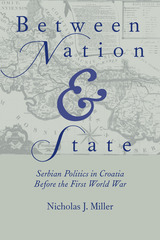
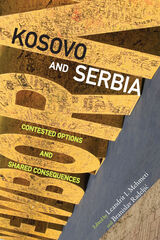
This volume brings together scholars of Serbian, Albanian, Christian, and Muslim backgrounds to examine the Serbian-Albanian dynamic in Kosovo through historical, political, economic, and social perspectives. The contributors offer fresh insights on the consequences of internationalizing the conflict, the impact of international agencies and institutions since the 1999 intervention, the continuing human rights violations, present day party politics, and the prospects for economic cooperation with Serbia, among other topics. Kosovo and Serbia will inform scholars and students of the region, exploring the nature of a tragic political and strategic struggle that has existed for centuries and drawn the attention of the entire international community.
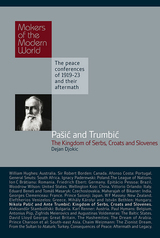
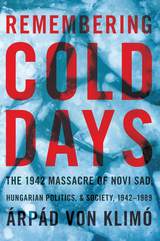
In marked contrast to other massacres, the Horthy regime investigated the incident and tried and convicted the commanding officers in 1943-44. Other trials would follow. During the 1960s, a novel and film telling the story of the massacre sparked the first public open debate about the Hungarian Holocaust.
This book examines public contentions over the Novi Sad massacre from its inception in 1942 until the final trial in 2011. It demonstrates how attitudes changed over time toward this war crime and the Holocaust through different political regimes and in Hungarian society. The book also views how the larger European context influenced Hungarian debates, and how Yugoslavia dealt with memories of the massacre.
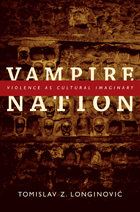
Interpreting oral and written narratives and visual culture, Longinović traces the early modern invention of ‘the serbs’ and the category’s twentieth-century transformations. He describes the influence of Bram Stoker’s nineteenth-century novel Dracula on perceptions of the Balkan region and reflects on representations of hybrid identities and their violent destruction in the works of the region’s most prominent twentieth-century writers. Concluding on a hopeful note, Longinović considers efforts to imagine a new collective identity in non-nationalist terms. These endeavors include the emigrant Yugoslav writer David Albahari’s Canadian Trilogy and Cyber-Yugoslavia, a mock nation-state with “citizens” in more than thirty countries.
READERS
Browse our collection.
PUBLISHERS
See BiblioVault's publisher services.
STUDENT SERVICES
Files for college accessibility offices.
UChicago Accessibility Resources
home | accessibility | search | about | contact us
BiblioVault ® 2001 - 2024
The University of Chicago Press









